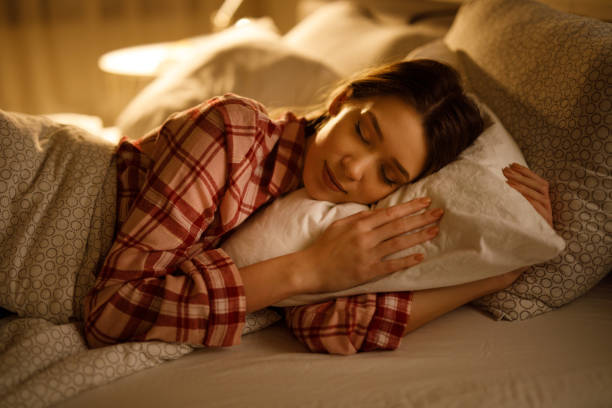It can affect their job performance, it can have an effect on the blood pressure, it can cause headaches, lack of sleep can cause a lot of physical symptoms, it can cause mental symptoms and it can cause symptoms with regards to blood pressure in the body as well. It's even tougher with the daylight savings time just occurring. And so that's a common time that people have difficulty with with their sleep.
And I think the first thing that a patient should do is start going to bed at the same time every night and that includes the weekends and during the week. Sleep hygiene is a term we use a lot in medicine and that refers to not only going to bed at the same time every night but also eliminating lifestyle factors that may be a problem with sleep. And that would include things like drinking caffeine before going to sleep, watching TV or playing video games before going to bed, checking a mattress to make sure poor mattress quality isn't an issue.

Having some kind of a ritual before going to bed. Whether it's reading a few pages out of a book or staying sleeping in the same bed or the same room every night, those are just a few things people can do. If that doesn't work, then I certainly think seeing a physician would be a good idea to further evaluate whether there might be some other causes of the poor sleep.
Sleep study can often be helpful not only in just diagnosing sleep apnea but also diagnosing other problems with sleep which would include restless legs and other problems. If a patient fails conservative cares or if they're having symptoms of sleep apnea or restless legs then we have a great team here at Methodist that I do refer to for sleep studies to further evaluate. So sleep apnea is a medical condition whereby a patient is not getting proper airflow at night and so they are asleep but they're not getting into restful, deep sleep because of most of the time an airflow problem in the nose or in the back of the throat.
And so when a person has an airflow problem, they're not quite getting as much oxygen as they need, which can lead to not only poor sleep, sleep that's not restful, but then can also lead to variety of symptoms, including excessive tiredness during the day, headaches, high blood pressure, in some cases, weight gain, and that kind of thing. There are a few solutions. Most common solution is to get set up for a device that can help with airflow delivery and that's called a CPAP.
So that's a mask that a person might wear at night when they sleep and that'll help with giving them positive airflow which most of the time provides a large benefit in symptoms. The other options would be to see a dentist that is trained in fitting an oral device, kind of like a retainer or a mouth guard that can change the position of the airway at night and so it can provide better airflow by wearing the mouth guard. Or less common options for treatment might include seeing an ENT and they may consider surgery to remove the tonsils or the adenoids or surgery to provide better airflow through the head and the neck.
Being overweight is certainly a risk factor and that weight can add mass to the neck, the body in general. And so when you have that added weight, it helps or it contributes, I guess you could say, to the airflow problem. And so certainly weight loss is one of the mainstays of treatment of sleep apnea.
In fact, sometimes just with the weight loss a patient can get a significant reduction in their symptoms from that alone.









